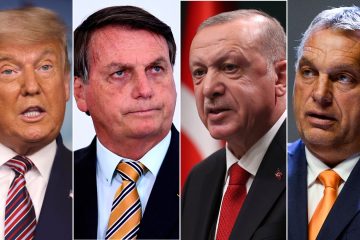
Identity Capital and the North-South Gap in Explaining Populism
The literature on populism in the 21st century often assumes that far-right leaders draw their support from voters who have lost out to globalisation. This is the case among low-skilled, white workers in Global North democracies, including the United States. But, there are also meaningful occurrences of backlash against the political establishment and liberal values in parts of the Global South that have clearly benefited from the post-Cold War trade openness. For instance, two of the largest democracies in the developing world have been shaken by right-wing movements that came to power with the support of the winners of economic liberalisation. In Brazil, Jair Bolsonaro, a former army captain, won the presidency in 2018 with the support of agribusiness exporters …









